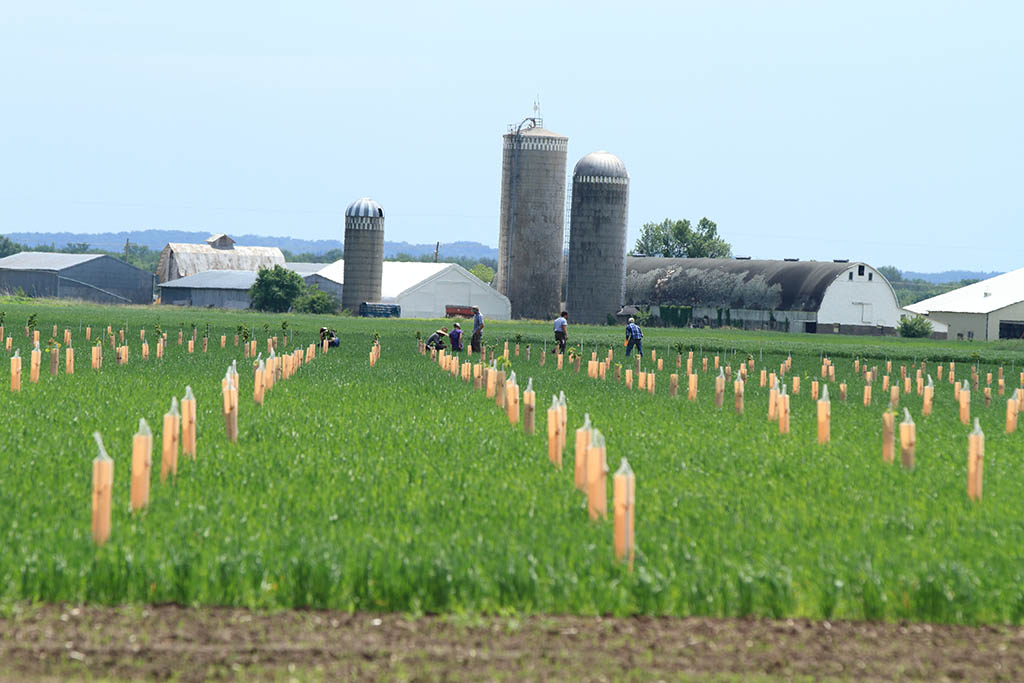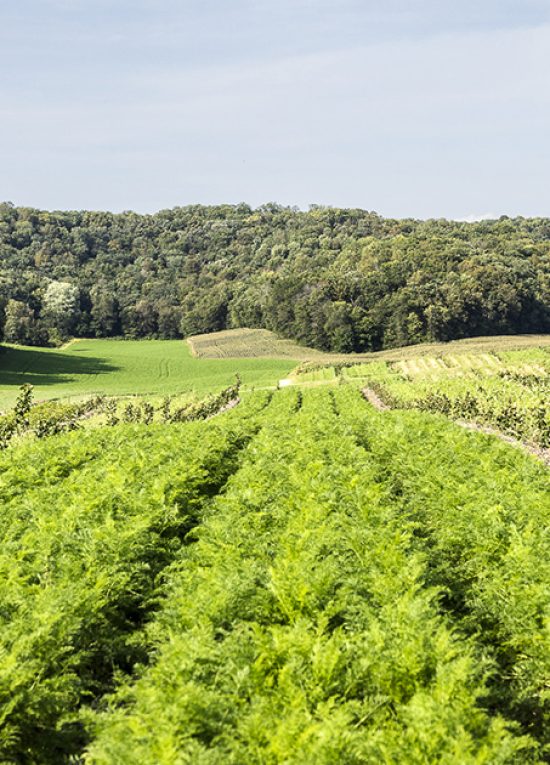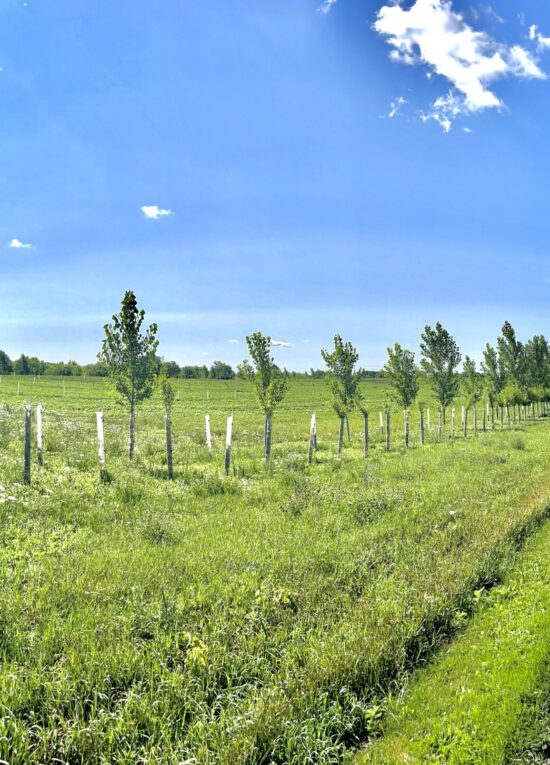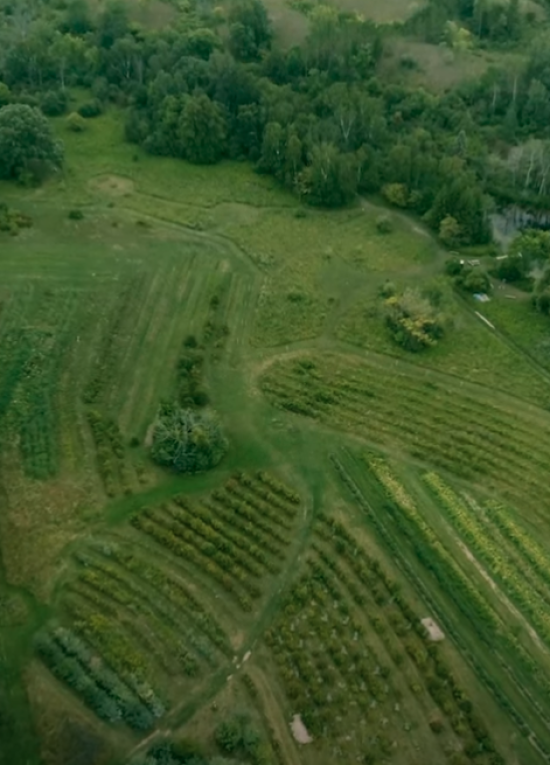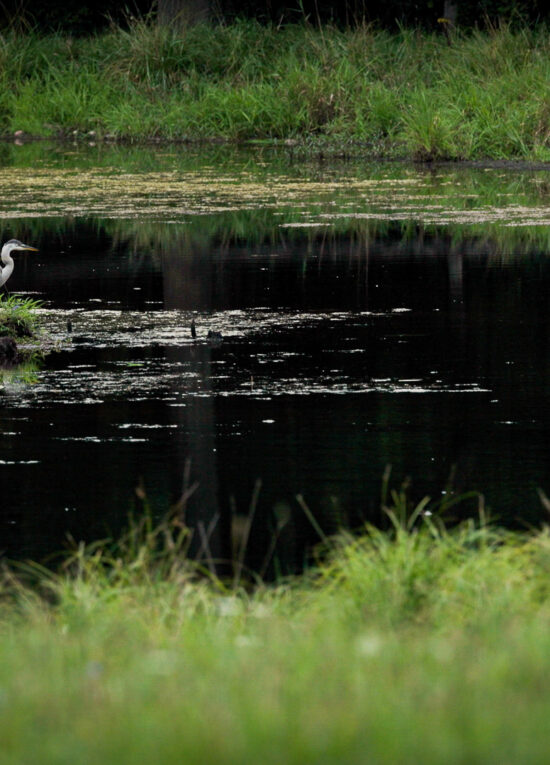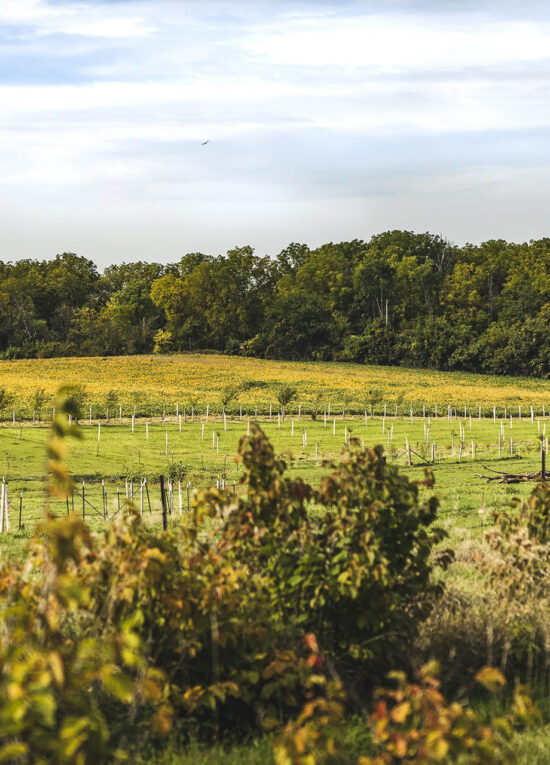Hudson Farm
Urbana, IL
Savanna Institute Demonstration Farm
Agroforestry Systems:
Alley cropping
Windbreak
Farm Information
Hudson Demonstration Farm, located near Urbana, IL, was established in partnership with landowner Cathe Capel, Canopy Farm Management, and the Savanna Institute in 2022. Nestled among a sea of conventional row crop production, Hudson is a shining example of the multiple options and opportunities that agroforestry can provide.
The 20 acres of windbreak plantings at Hudson Farm feature both border and internal windreaks and host 11 different designs and 28 species of trees and shrubs, including elderberry, hazelnut, serviceberry, gooseberry, willows, oaks, black walnut, and a variety of evergreens, just to name a few. This planting is enrolled in the USDA Farm Service Agency and Natural Resource Conservation Service’s Conservation Reserve Program (CRP). CRP is a set-aside program designed to take vulnerable land out of annual agricultural production and reserve it for conservation for 10 years or longer. This program is a great choice for farmers and landowners interested in protecting their fields with windbreaks because it provides a lot of support, including technical assistance for planning and design, funding to help establish the planting, and a yearly rental payment from the USDA for the length of the contract.
Acres: 120
Hudson Farm also includes 80 acres of alley cropping to showcase the many options for planting trees and woody species into productive agricultural systems. Sixty of the alley cropping acres at Hudson Farm feature five native timber species planted in both one-row and three-row blocks infield with conventional corn and soybean production. As part of our research program, the row-cropped alleys are planted in three different widths – 40 feet, 80 feet, and 120 feet – to track how alley size affects both conservation and production yields. Savanna Institute operates the alley cropping system on Hudson Farm in partnership with a local row crop farmer who is excited to try innovative practices.
The remaining 30 acres feature two different perennial alley cropping systems. On 15 of those acres we’ve planted elderberry, black currant, and heartnut shrubs between rows of nut trees. The spacing for this system is designed to accommodate mechanical harvesting of black currants, which are planted on mounds to accommodate their drainage needs.
On the remaining 15 acres, we’ve planted a mixed production and conservation alley cropping system. Here, instead of a productive, agricultural crop in the alleys between tree rows, we’ve planted herbaceous groundcover and pollinator habitat for conservation. The pollinator habit alleys are enrolled in CRP, the same program that supports the windbreak planting. This design provides vital habitat for endangered pollinators and allows farmers to see options for incorporating conservation directly in-field, rather than along the field edges where they typically appear.
The innovative work at Hudson Farm operates under a 50-year lease agreement that protects both the Savanna Institute and the landowner and provides clear pathways for the many ways the land can grow and change over time. Hudson is part of a network of demonstration farms operated by the Savanna Institute in Illinois and around the Midwest. Demonstration farms serve as learning hubs for farmers and landowners who want to add agroforestry to their sustainable farming practices.
Research in Progress
- 20-acre windbreak featuring 11 designs and 28 species
- 70-acre grain and timber alley cropping experiment
- 15-acre hazelnut variety trial and pollinator habitat alley cropping
- 15-acre elderberry, black currant, and heartnut alley cropping
- Innovative 50-year lease that supports multiple, long-term enterprises with multiple partners
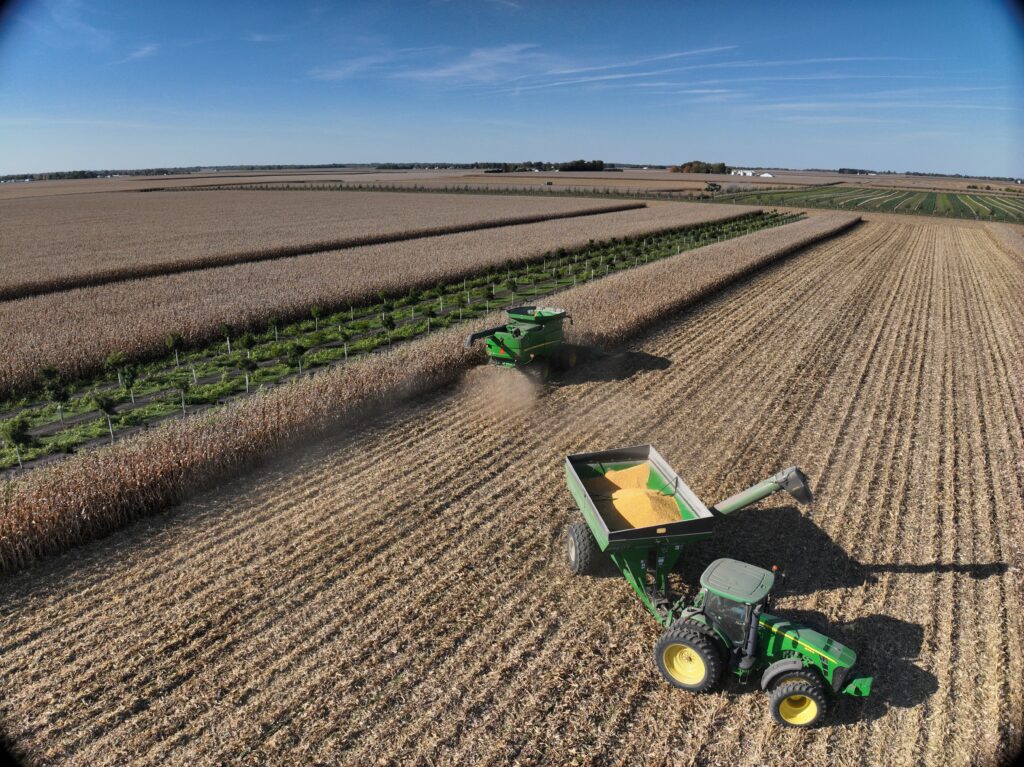

One-On-One Support for Farm Planning
Technical Assistance Program
Get help planning your perennial farm system. Our Technical Assistance Program is here to guide you through the process of planning, funding, and planting trees on your farm.
